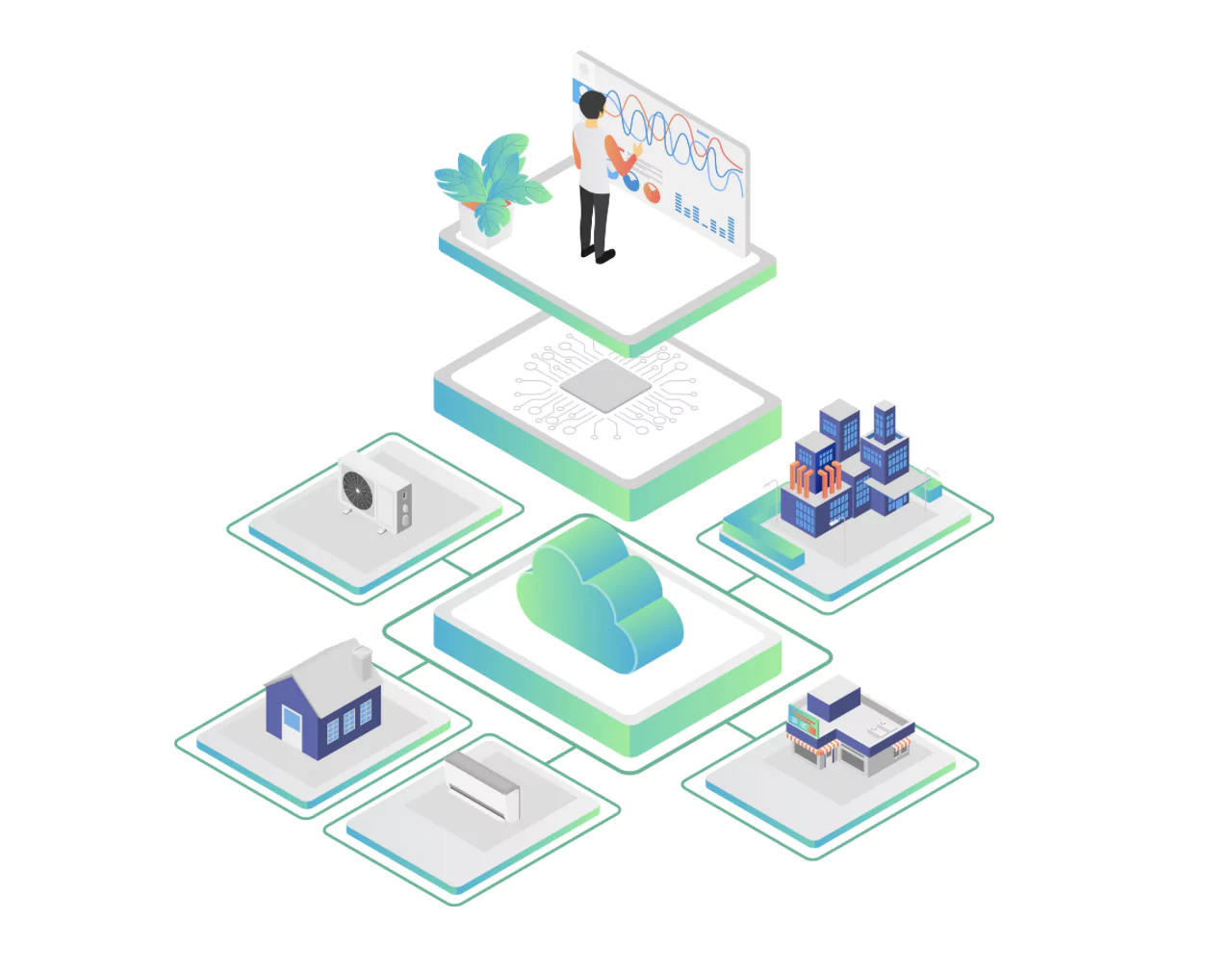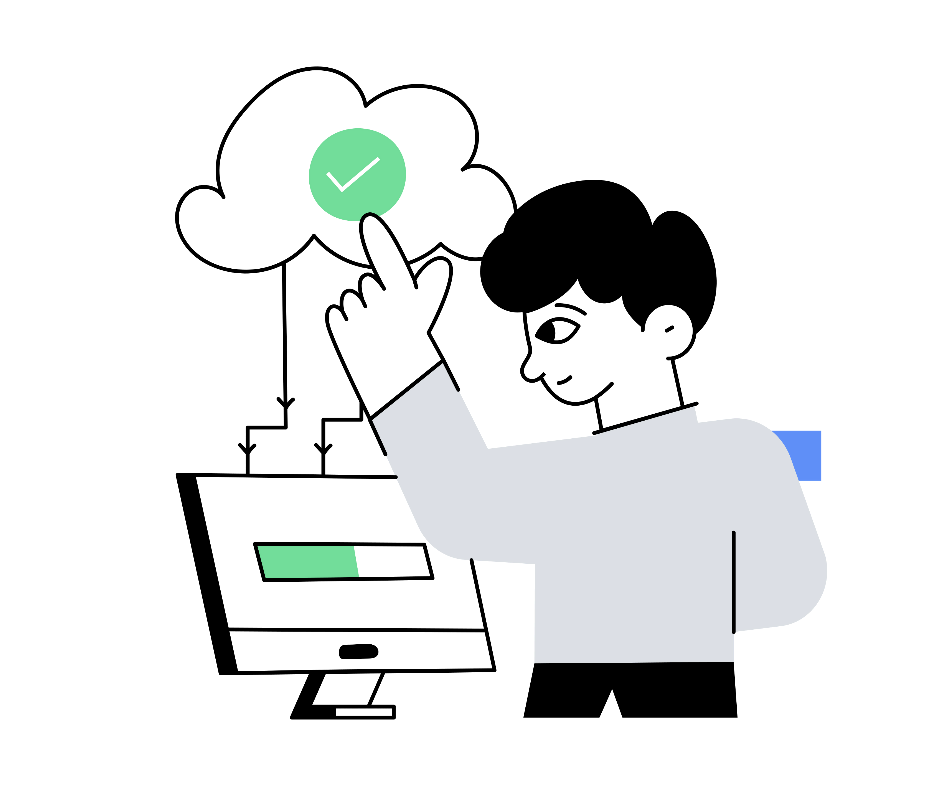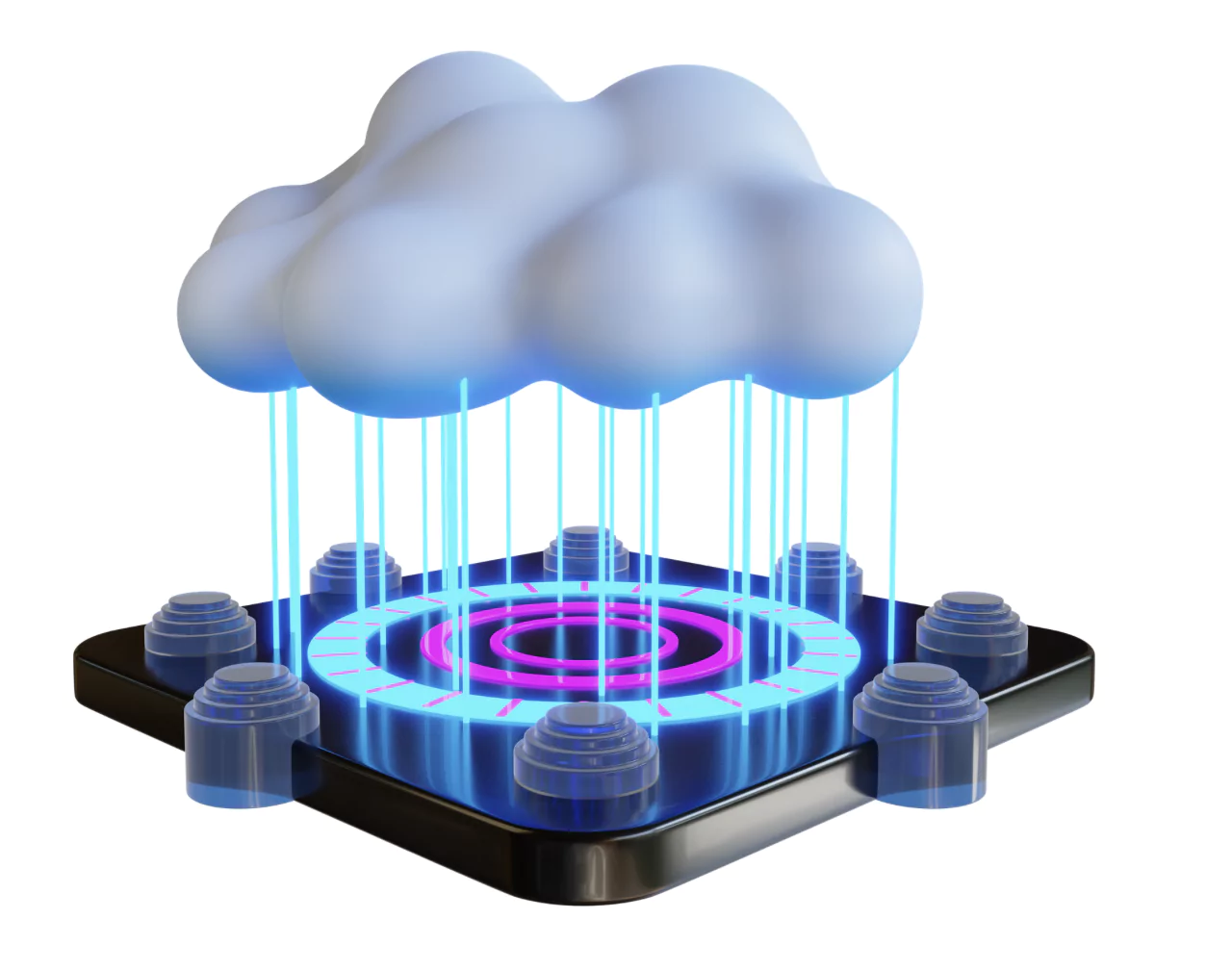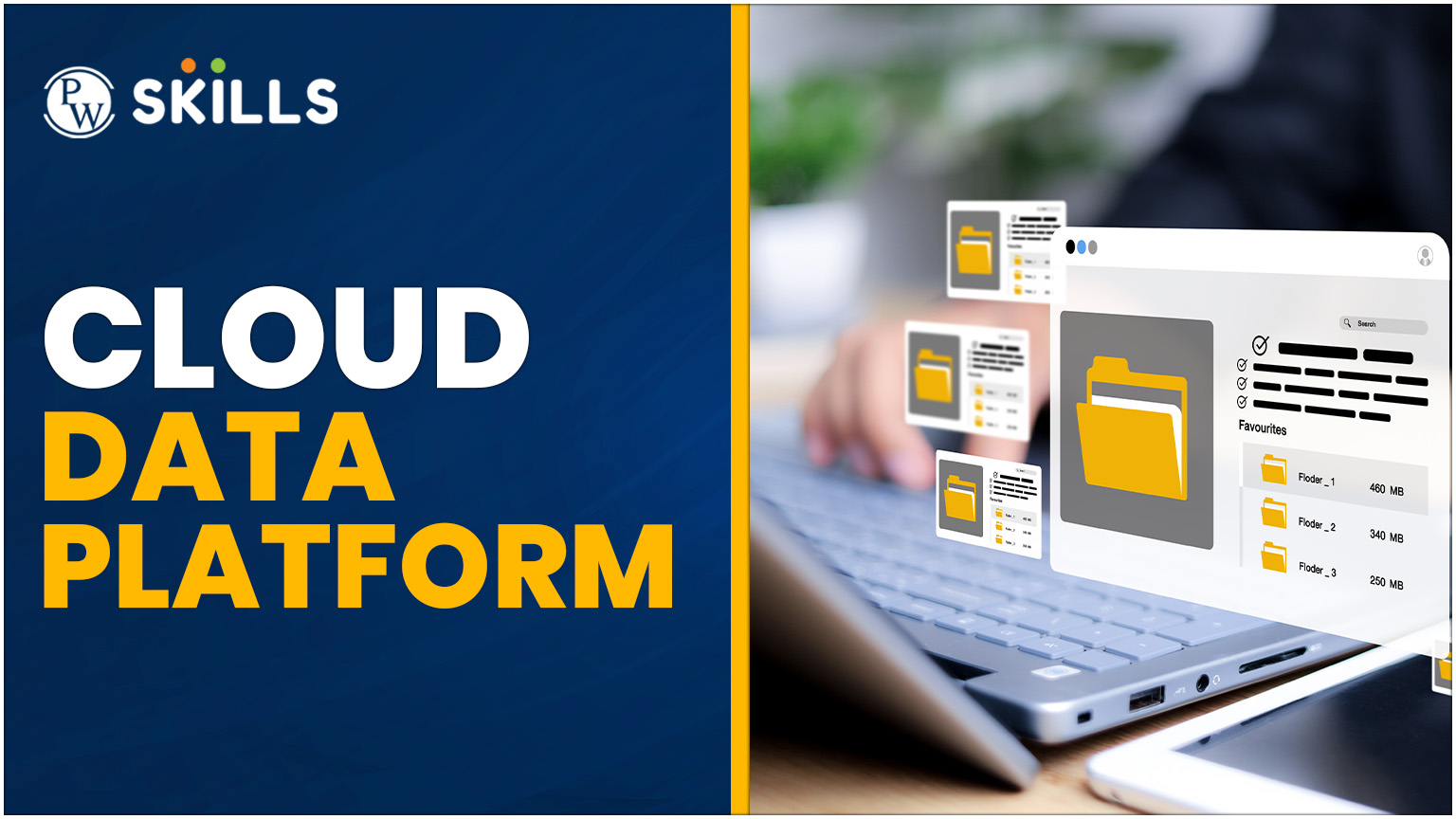Cloud Data platform is a revolution to the working of storage methods we used to have for our data and information. The cloud platform help businesses to collect data, store, and process data in the cloud. Clients can easily access, scale and centralise the utilisation of data to gain useful insights and make informed decision making.
In this article, we will collect more information about cloud data platforms and their perks in the tech industries.
What Is a Cloud Data Platform?
Cloud Data Platform is built for providing organisations an easier way to use the data and offer virtualized access to data from various sources and locations. It stores and manages data generated with multiple resources which enable users to access and use data.

Cloud data platform supports migration of an organisation’s data to the cloud platform. The cloud platform manages the entire data life cycle of an organisation. The complete life cycle of a cloud platform includes storage, processing, analysis, governance and security of data from various sources.
Core Components of Cloud Data Platforms
There are some most important components inside the cloud data platforms which we are going to learn below.
1. Data Ingestion
This method is used to bring data into the platform from various sources using tools like Azure data factory, Google Cloud dataflow, AWS Kinesis, Apache Kafka, and more. Data ingestion supports batch and real time data processing which can further be processed, stored in any of the storage devices.
2. Data Warehouse
With a data warehouse we are providing an optimised and structured environment for filtering, storing, transforming data. Cloud data warehouse provides high performance and business intelligence capabilities.
The data warehouse component is used for structured and analytical workloads. For example, Snowflake, BigQuery, Redshift, and more.
3. Data Lakes
Data lake is the heart of cloud data platforms as it offers scalable and cost effective measures designed to hold a wide range of raw data in all types of formats such as unstructured, structured and semi-structured. It provides a central location for all unprocessed data in the beginning.
4. Data Governance and Security
This component takes care of ensuring the data privacy, compliance, and quality. It is used to access control and authentication, data cataloging, compliance, and more.
5. Machine Learning & AI integration
We have to perform managing operations about the data which can lead to improved discoverability, governance, and tracking of data information. Using Cloud data platforms integration of machine learning and smart models become easy.
6. Scalability
Scalability is an important factor in automating compute or storage based on demand which is pay as you go mode. Users can benefit from this model as you only pay for what you use, no extra add ons. The cloud data platform provides you with dynamic storage and computable resources.
Top Cloud Data Platform Use Cases

Some of the cloud data platforms you can use are mentioned below.
1. Business Intelligence & Reporting
The cloud platform is used to centralize and analyse data for KPIs, dashboards, and in depth reporting. It can use tools like Power BI, Tableau, Looker, etc.
This include preparing, analyzing and displaying data in a readable and approachable way. You have to present data in the form of reports, dashboards, and more to leverage better decisions. It includes industries like Finance, Retail, Healthcare, etc.
2. Real Time Analytics
With Cloud data platforms you can easily monitor users behavior, track metrics based on operation, fraud detections, and that too in real time using tools like Amazon Kinesis, Spark Streaming, Apache Kafka, and more. It is more in demand in industries like E-Commerce, Fintech, IoT, Logistics, and more.
3. Machine Learning & AI
The cloud data platforms are used to train and deploy models for personalisation, predictive analytics, and more. It facilitates automation and reduction of repetitive manual tasks to boost the productivity of the process on cloud platforms.
4. Data Warehousing
With data warehousing we can migrate legacy data warehouses to the cloud which directly improves the speed, flexibility and scalability. With cloud data warehouses we can get data storage, processing, loading, cleaning, processing of unstructured as well as structured data. It can process a large amount of data within a cloud environment.
5. Financial Forecasting
Cloud data platforms use the large volume of data available based on transactional trends to forecast trends, and manage risks. It can track and predict future trends, outcomes, events, or cloud spending based on the history of data usage and considering future initiatives.
Key Features of Cloud Data Platforms

Some of the major features of the Cloud data platforms are mentioned below.
1. Multi-Source Data Ingestion
The Cloud data platforms are able to ingest data from various sources together and it supports batch, real time, and micro batch data. You can fetch information or data even in unstructured or raw format before processing.
2. Security
With cloud data platforms all your personal and important information against any potential harm or unauthorised access. With cloud data platforms you get multiple layers of securities and nobody can make changes without your permission.
3. Data Warehousing
Cloud data platform often consists of a data warehouse having capabilities of storing and managing a large volume of data. These data can be used for analytics as well as reporting purposes.
4. Data Engineering
All services included within data engineering focusing on designing, building and maintaining the build of the system within the cloud environment to collect, process, store, and analyse data inside.
5. Data Pipelines
These data pipelines can easily be handled and coordinated where data is moved from source to target ensuring proper data quality, reliability, and consistency.
6. Data Analysis
Cloud data platforms support processing data from various sources into a structured format which enables data scientists to be able to work with the structured oriented data. Also, crucial insights can be picked from analysis on big data. This can be used for further improving the platform, decision making, model improvement and more.
Benefits of Cloud Data Platforms

Cloud Data Platforms are the best way to handle data storage, security, and data manipulation. Let us know some of the major benefits of cloud data platforms.
Enhanced Scalability
The performance of a cloud platform is much better than the traditional on site platforms. It ensures that the organisation can easily process large amounts of data efficiently. With cloud platforms scaling data services with rapid deployment is possible.
Cost Efficient
These cloud data platforms are based on a pay as you go pricing model where you can save a lot of money. You only have to pay for whatever you used, no large upfront money on setting up hardware and software.
Increased Accessibility
Cloud platforms allow easy access to data, features and tools from anywhere on any device with an internet connection. This supports proper collaboration among the team members reducing the latency or bottleneck factors.
Automated Backup
Cloud data platforms provide you with the facility of automated backup which can take place at any schedule. You do not need to worry about updating your services manually. Automated backup ensures that all your important data get updated and synced to reduce any loss of data by any unforeseen events.
Agile Environment
With cloud platforms we can easily start deploying and scaling data services as per our needs. The accessibility and on demand presence of cloud platforms eliminates the need of lengthy processes like setup, approvals, infrastructure, accessibility permissions, and more.
What Can We Do With Cloud Data Platforms?
There are plenty of features and use cases which makes cloud platforms the best alternative of traditional storage devices.
- Cloud data platforms can collect, integrate and consolidate data from various sources easily.
- With cloud data platforms you can easily perform real time data analysis on complex and huge datasets.
- Cloud data platforms give you the flexibility to build and deploy machine learning models.
- On cloud platforms you can easily process and stream data in real time which helps in monitoring as well as fraud detection or triggering alerts.
- With Cloud data platforms you can use your favorite applications online without having to download them on your device locally.
- You can access your data or use any applications anytime anywhere and from any device.
- You only need to pay for whatever you use, no extra money on cloud data platforms which makes it cost efficient.
Also Read:
- What is Exploratory Data Analysis?: Complete Explanation For Beginners
- Deloitte Data Analytics Internship with Free Certificate
- Customer Segmentation Analysis: Definition & Methods
- What Are Some Common Statistical Measures In Data Analytics?
Learn Data Analytics With PW Skills
Master Data Analytics with PW Skills online Data Analysis program. Learn all fundamental concepts of SQL, Database, Query handling, and more. Get hands on learning skills and build a strong portfolio with practice exercises, module level assignments, quizzes and more.
With the latest updated Data Analytics Course you will get ready for your next interview as our dedicated mentors will guide you with all your career options. Complete the course assessment and quizzes to download your own certificate and strengthen your portfolio with pwskills.com
Cloud Data Platform FAQs
Q1. What are cloud data platforms?
Ans: Cloud Data Platform is built for providing organisations an easier way to use the data and offer virtualized access to data from various sources and locations.
Q2. Is Cloud data platform taking the place of local storage?
Ans: Yes, a local storage system is at its end phase as cloud platforms allow users to store their data directly on servers which can easily be accessed and modified whenever you want.
Q3. What are some examples of cloud data platforms?
Ans: AWS Data Lakehouse, Snowflake, Google BigQuery, Amazon Redshift are some examples of cloud data platforms.
Q4. What are the top 3 cloud platforms?
Ans: The three top cloud data platforms are Amazon web service (AWS), Microsoft Azure, and Google Cloud platform.




